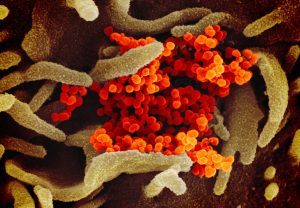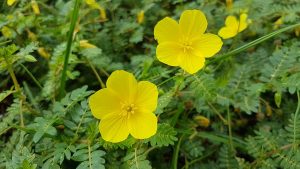The Benefits of Ginkgo for Brain Health and Beyond

Ginkgo is a tree native to Asia. The tree is the last remaining member of its botanical phylum, where all other members have gone extinct. It’s often been described as a living fossil. Actual fossils of ginkgo trees have also been found from 270 million years ago still showing its distinctive features.
Ginkgo leaves have been used as medicine for thousands of years in Asia (Hatano 2011). In Chinese Herbal Medicine, the herb was known for helping support brain health, circulation and the respiratory system. More recently, modern medicine has been confirming some of the known benefits of ginkgo while discovering new ones.
Ginkgo and Brain Health
The data on Ginkgo for cognitive function and/or dementia is mixed, although it leans positive. A recent meta-analysis on dementia patients showed that long-term treatment (more than six months) improved cognitive function when reasonable doses were used. The study identified that the majority of the clinical trials showing no benefit were of shorter duration or used lower doses of ginkgo (Liu 2019).
Schizophrenia is a challenging to treat condition where a person seems to have lost touch with aspects of reality. Interestingly, ginkgo has been studied for its benefits in schizophrenia. An evaluation of eight separate studies from China concluded that ginkgo was helpful for negative and overall symptoms of schizophrenia (Chen 2015).
There’s also evidence that ginkgo may help with anxiety. In rats, ginkgo appears to decrease anxiety in a dose dependent manner (Satyan 1998). In a clinical study, patients with generalized anxiety disorder improved after four weeks with ginkgo treatment (Savage 2018).
Tinnitus is a condition where damage in the inner ear causes sounds, often ringing, in the affected ear. Similar to dementia, there are a number of studies showing somewhat mixed effects using ginkgo for tinnitus. Overall, a recent analysis concluded that ginkgo appears that it may be helpful, but knowing the cause of tinnitus and proper dosing is important to get benefits (Mahmoudian-Sani 2017).
Ginkgo and Cardiovascular Conditions

Strokes can be debilitating for individuals, causing significant damage to the brain in the area affected. Preclinical data from animal research indicates that ginkgo appears to provide significant protection from strokes when they occur. Ginkgo has been shown to (Feng 2019):
- Decrease swelling (edema) in the brain after a stroke
- Act as a strong antioxidant, protecting the brain from free radical damage during and after strokes
- Switch immune cells in the brain from a proinflammatory to an anti-inflammatory state
- Keep brain cells alive to help maintain function after they have been damaged
For human trials using ginkgo to treat stroke, the majority of the data suggests benefits, however, the quality of the studies were low. Additional research is necessary to verify the effects (Zeng 2005). The data suggests most benefits come with using ginkgo as a treatment after a stroke has occurred and not as a preventative.
Other cardiovascular benefits appear plausible, but also require more research. In rats, cholesterol improves with ginkgo, and some evidence suggests blood pressure lowering effects as well (Eisvand 2020).
Other Potential Benefits
While human clinical trials are lacking or preliminary, evidence suggests there may be additional benefits with ginkgo for other conditions. Ginkgo has anti-inflammatory properties, which often indicates an herb may have broader applications. Inflammatory bowel disease, migraines and arthritis all have preclinical or preliminary evidence suggesting that ginkgo may help (Motawi 2012, Chen 2013, Allais 2013).
Conclusions
Ginkgo is a fascinating tree, with leaves that have been used for medicinal purposes for thousands of years. The latest research is starting to show benefits with ginkgo, and more research can only help flesh out our understanding of the potential therapeutic uses of the plant.



